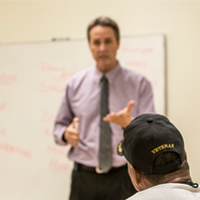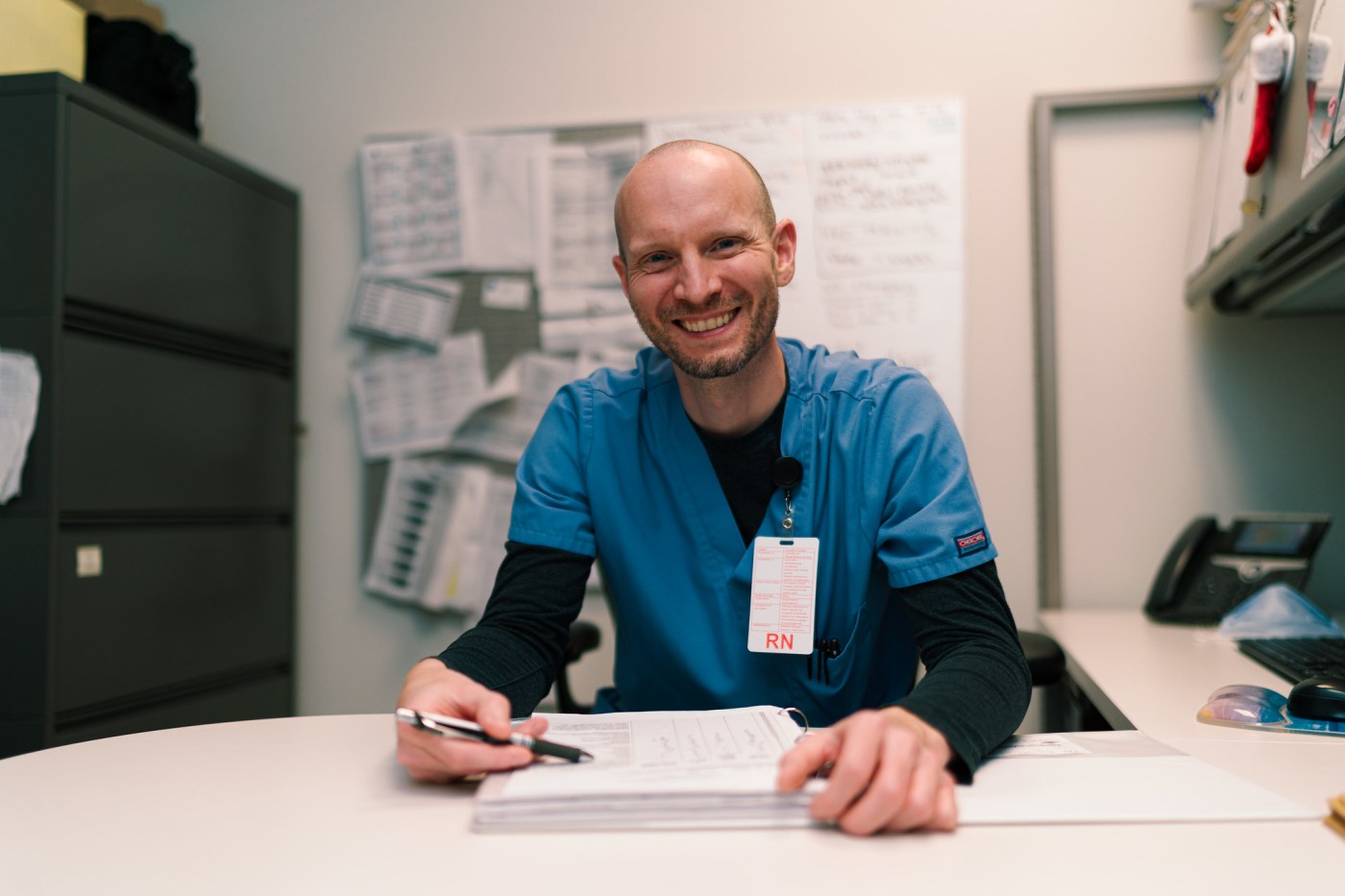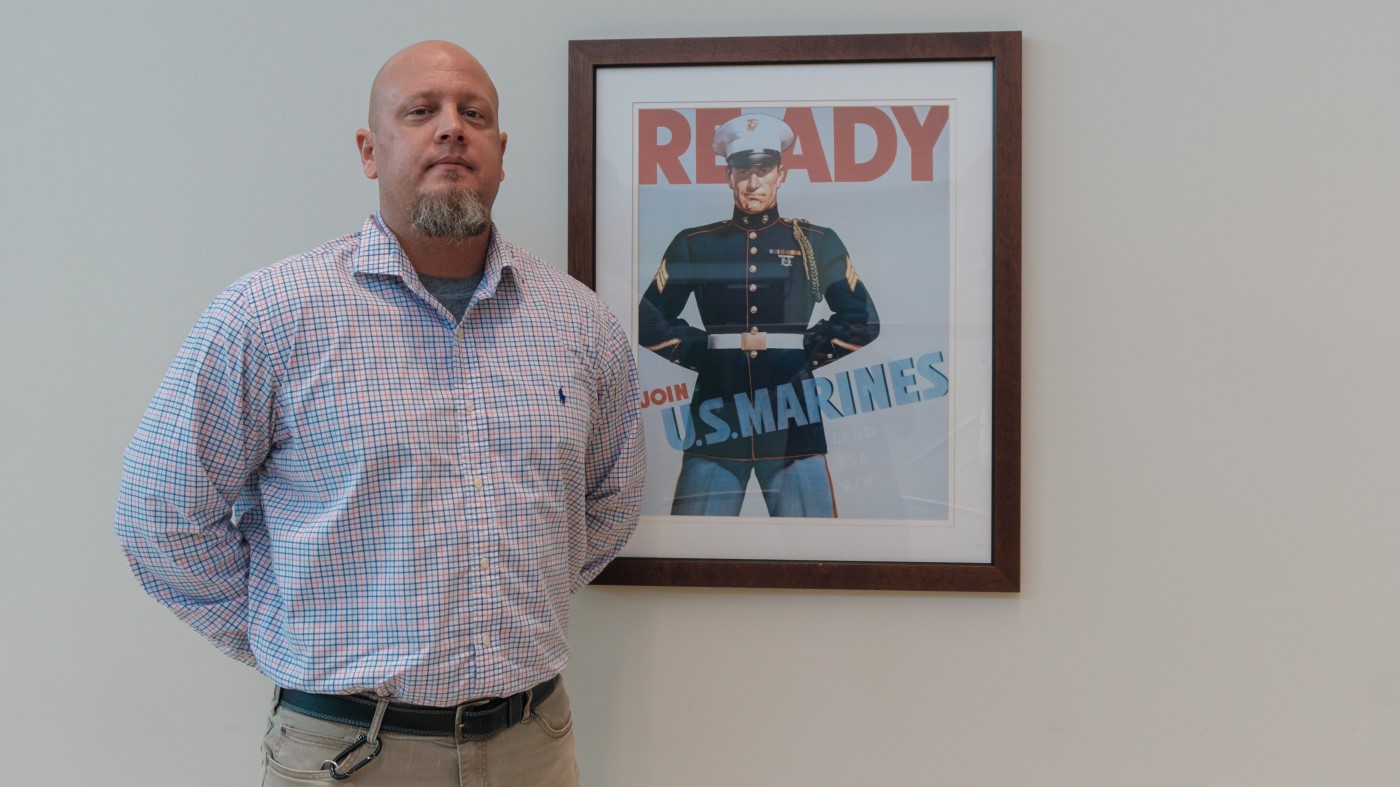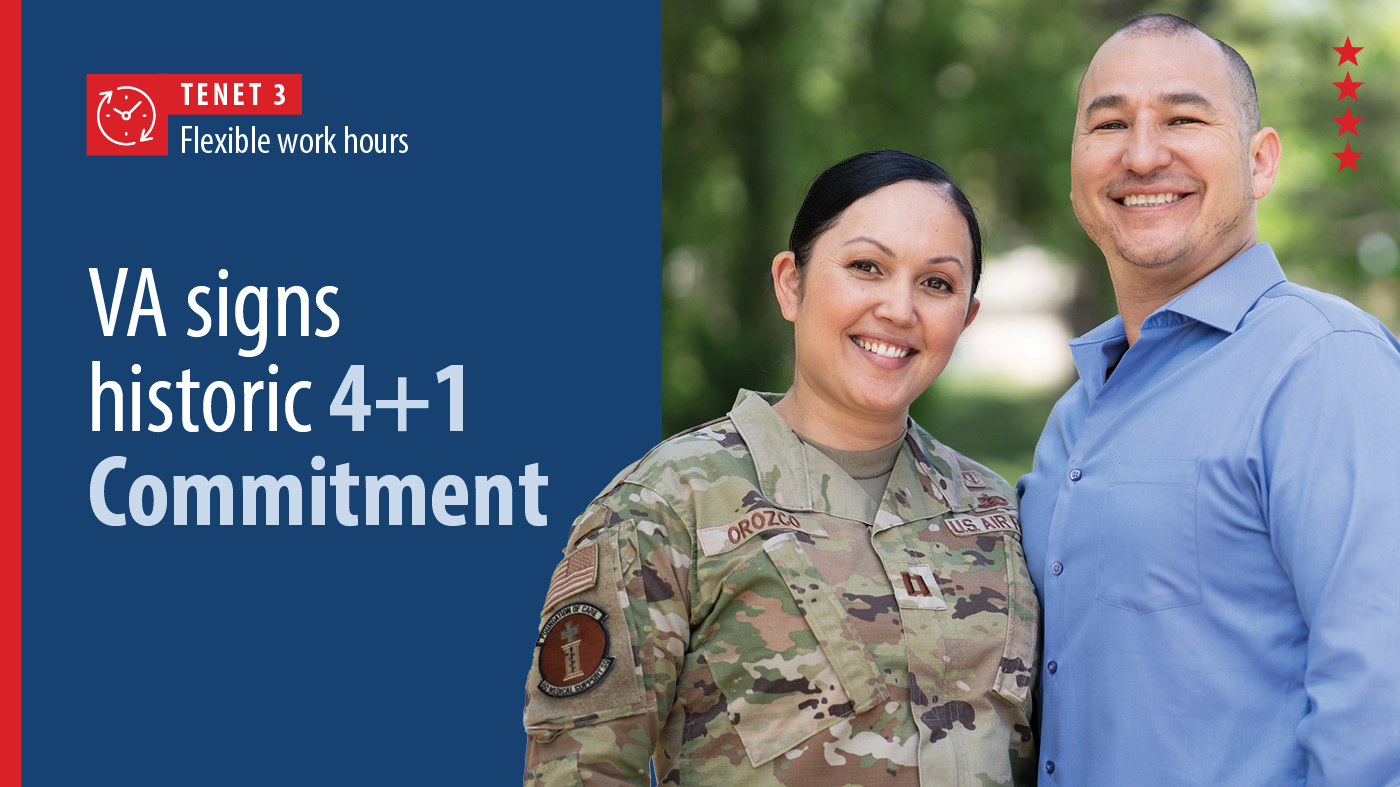We recognize that mental illness is an area of focus for us to help ease the transition Veterans face when they return home to civilian life. One of the most common issues is post-traumatic stress disorder, or PTSD. While there’s been a number of advancements in recognition and treatment, we’re constantly working on ways to do better for our Veterans. So as we move forward on the heels of Mental Illness Awareness Week, we look to a happier and healthier future for those who have served our country.
Our work starts with our National Center for PTSD. Here, we strive to improve PTSD care through research focused on the prevention, causes, assessment and treatment of traumatic stress disorders. Each of the center’s seven divisions has its own area of concentration, giving researchers access to areas of expertise across the entire country and opportunities for specialization for our healthcare workers.
Our divisions include:
Provides leadership, directs program planning and promotes collaboration to drive the success of each division.
Behavioral Science Division Research
Studies the role behavior has in adapting to traumatic stress, in an effort to advance knowledge of the mechanisms, course, assessment and treatment of stress- and trauma-related psychopathology.
Clinical Neurosciences Division Research
Conducts neurobiological, imaging and genetic studies on the physical basis of traumatic stress, risk and resilience factors, and pharmacotherapy and rehabilitation for PTSD and comorbid conditions.
Dissemination & Training Division Research
Specializes in research on provider and patient needs and preferences, the implementation and effectiveness of evidence-based assessments and treatments, and the development and testing of novel assessments and treatments.
Evaluates the Veterans Health Administration programs that provide PTSD treatment.
Pacific Islands Division Research
Helps improve access to care for Veterans and active duty personnel by furthering our understanding of cultural attitudes and the use of advanced technology to reach those unable to access adequate care.
Women’s Health Sciences Division Research
Focuses on the assessment and treatment of the psychological and physical health impact of military service on women, as well as trauma in men and women.
Together, we are helping Veterans nationwide find peace of mind. For more details on each of our centers, contact your local Veterans Health Administration office.
If you are interested in joining our team, explore career opportunities in your area.
Topics in this story
More Stories
There’s a time and a place (and a way) to reach out to recruiters during the application process. Find out the best way to reach out with our helpful tips.
Even as we serve Veterans, we want Veterans like you to join our team, because you understand the value of serving those who served.
VA is implementing the historic 4+1 Commitment to attract, hire, and retain military spouses. Learn more about this commitment and a key tenet, VA’s commitment to flexible work hours for military spouses.







This Combat Vietnam Veteran, VA-diagnosed with PTSD, was granted benefits on appeal for the issues of PTSD and tinnitus on/or about October 31, 2013; Notice was received by the Veteran on November 19, 2013. Ten years after being terminated by the Dept. of State due to accusations of War Crimes in Vietnam (among other allegations). This Veteran served in the Army from September 26, 1967 to April 30, 1969. This Veteran was employed as a Visa Specialist, for three/3 years, at the American Consulate in Tijuana (and Mexicali ), Mexico. The accusations of war crimes in Vietnam came from a disgruntled fellow employee who earlier accused this Veteran of trading Visas for food (burritos); the disgruntled employee was found to be exaggerating in his accusations. The disgruntled employee was found to be falsely accusing the Veteran of wrong-doing. It is believed the disgruntled employee blamed the Veteran for reporting the disgruntled employee’s use of the the agency’s computers to distribute pornographic material that was found to be offensive by the female employees. The disgruntled employee was terminated but not before unleashing a campaign to discredit and maligned the Veteran in efforts to get the Veteran fired. After the first false accusation and the ensuing character-assasination, the Veteran’s un-diagnosed PTSD began to well-up and symptoms began to appear (re-experiencing the war, flashbacks and nightmares, avoidance and isolation, increased arousal, insomnia, being on guard, being irritable, severe depression and anxiety) and these symptoms reduced the Veteran’s ability to function in relationships, at work, in agency leisure activities. The Veteran began to experience difficulty understanding others, flash anger, difficulty expressing thoughts, poor judgement and reasoning, impaired social skills and the inability to recognize or accept limitations. The Veteran was in a hostile environment and could no longer do his job properly; his mind was a mess. The Veteran finally resigned his position because he could no longer work in such a hostile environment. The Veteran lost income, job related benefits, peace of mind, due to unsubstantiated allegations and unrecognized symptoms of PTSD. Something like the Veterans who were refused benefits due to dishonorable discharges for actions later recognized to be brought about by PTSD; these Veterans had their discharges upgraded and now are able to get benefits. This Veteran lost federal employment benefits and has
not been able to get those lost benefits back. Is there a possibility to right this wrong?
Really nice to hear that the VA is still interested in helping Veterans with PTSD. Gosh, I have been trying to get help with my PTSD for quite a while. STILL WAITING. Just patting yourselves on the back, doesn’t actually help Veterans, actually PROVIDING SERVICES would. Better yet, provide the services in a timely manner. I’ve been waiting for paperwork to start my claim, have received one MST/PTSD counseling session (via video conference).
Regards,
My belief as a Veteran a Veteran has PTSD but not seen Combat should have a meeting at all Veteran Mental Health Clinics